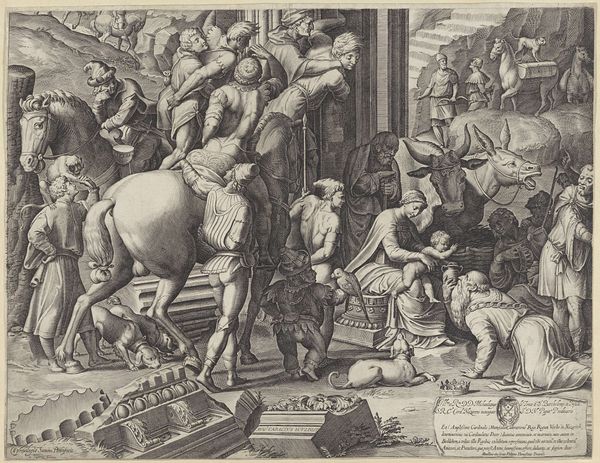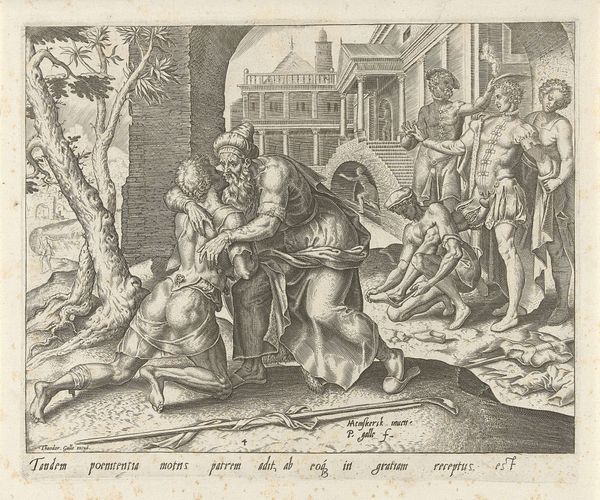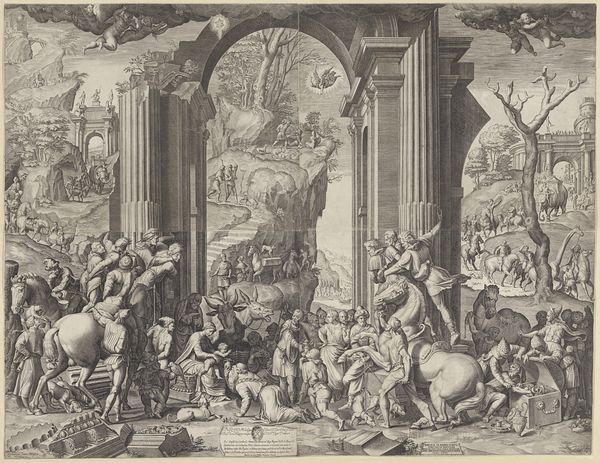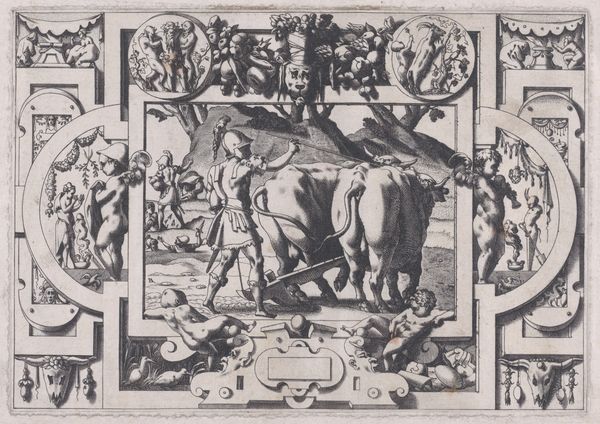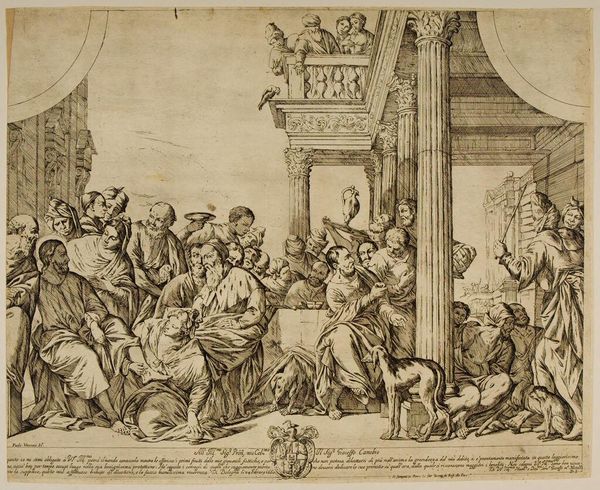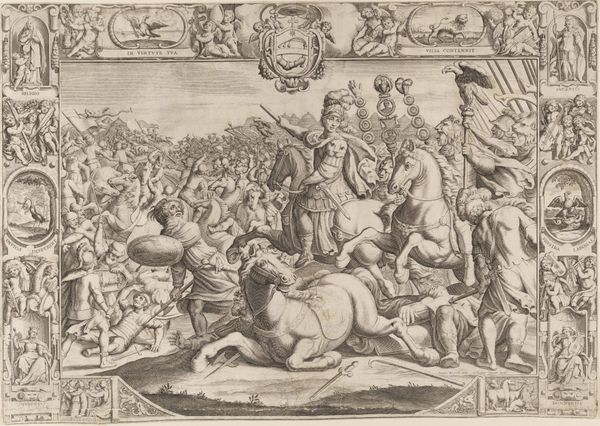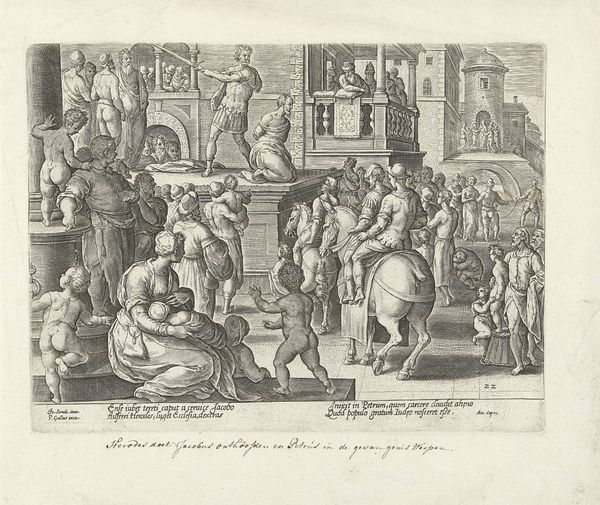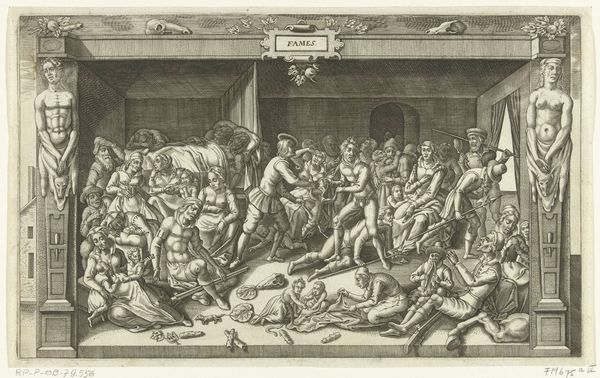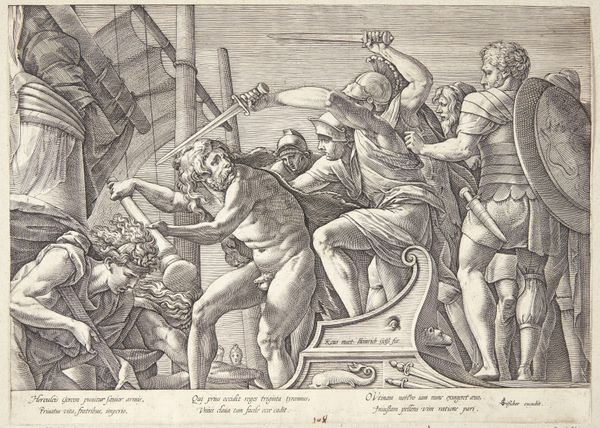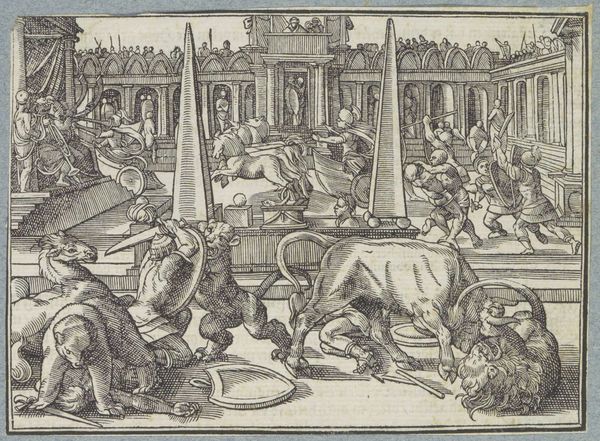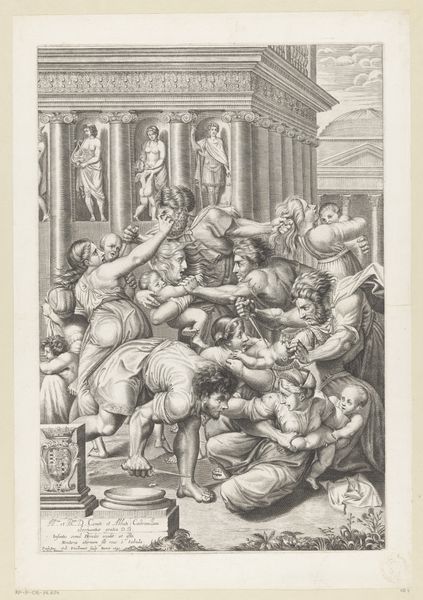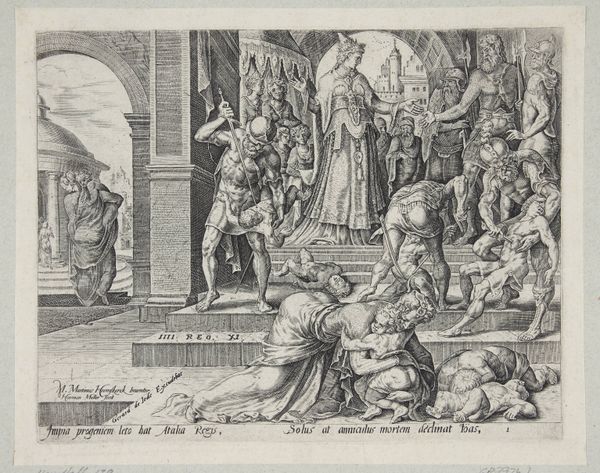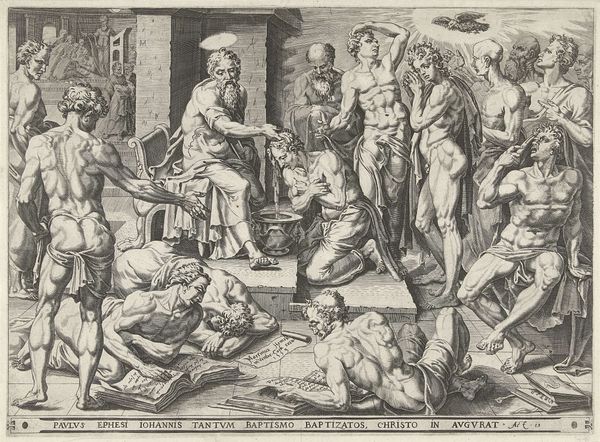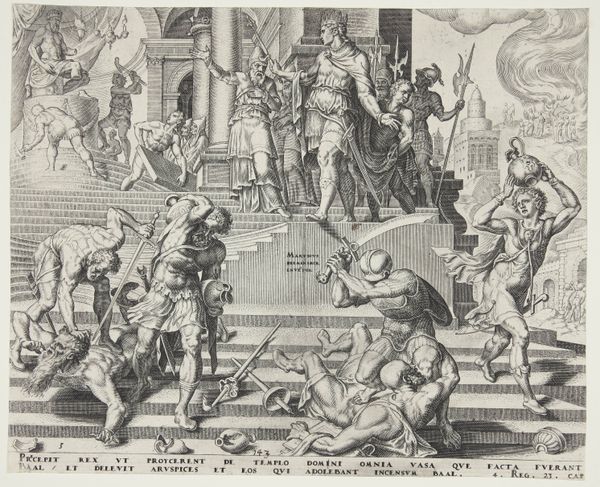
drawing, print, ink, engraving
#
drawing
#
narrative-art
# print
#
caricature
#
classical-realism
#
mannerism
#
figuration
#
ink
#
history-painting
#
engraving
Dimensions: height 398 mm, width 515 mm
Copyright: Rijks Museum: Open Domain
Agostino Carracci made this engraving, "Adoration of the Kings," around 1586, using a metal plate to transfer the image onto paper. Engraving is an indirect process; unlike drawing directly onto paper, here Carracci used tools to cut lines into the metal, which hold ink, and then printed onto paper. This adds a layer of technical skill, where the artist had to plan in reverse. Looking closely, you can see the character of the engraved line—precise, consistent, and capable of rendering fine detail. This medium was well suited to Carracci's style, rooted in the traditions of Renaissance draftsmanship. Note the musculature of the figures and horses, the rich folds of fabric. But the choice of printmaking also implies a desire for wider distribution. Engravings like this one made art accessible to a broader public. They provided a means of circulating imagery and ideas more democratically. So, while Carracci's artistry is evident, so too is the social context in which he worked.
Comments
No comments
Be the first to comment and join the conversation on the ultimate creative platform.
